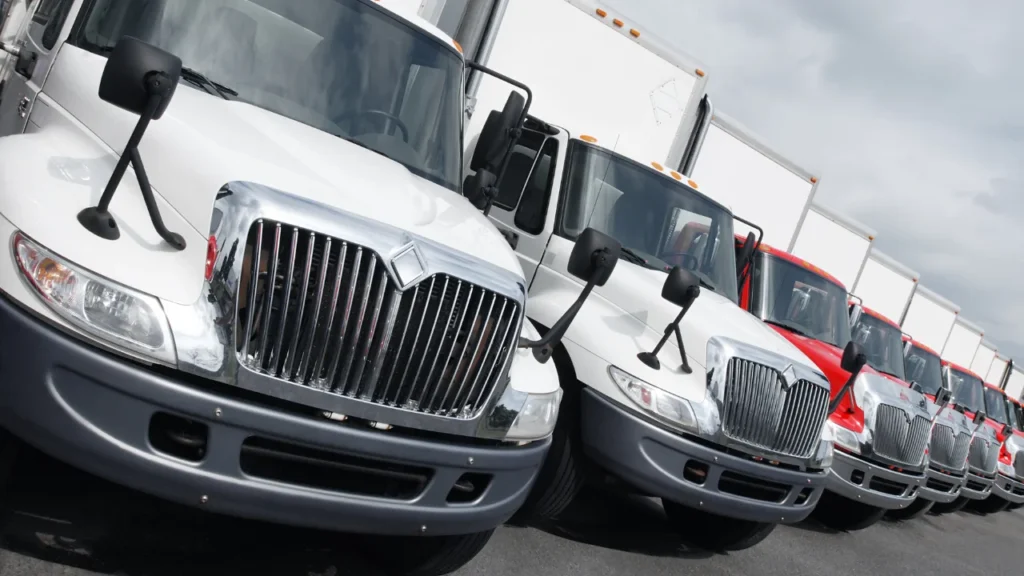Fleet management has evolved significantly thanks to advances in various technologies such as the Internet of Things. These tools not only optimize vehicle control but also improve safety, reduce operational costs, and increase efficiency. Understanding the most important technologies in this field is key for any company looking to manage its resources effectively. Here are the latest technologies that can help you manage your truck or trailer fleet more efficiently.

GPS Satellite Tracking Systems
The use of GPS satellite tracking systems is essential for fleet management. This technology allows you to know the exact location of each vehicle in real-time, facilitating route tracking and control. With this information, companies can optimize travel time and respond more quickly to any incidents.
Telemetry and Vehicle Control
Telemetry integrates telecommunications and information technologies to manage and monitor vehicles. Through telematics, valuable information can be obtained about vehicle performance, driving habits, and maintenance needs, helping to prevent mechanical failures and improve road safety.
Fleet Management Software
Fleet management software centralizes all operations related to vehicle control. From unit tracking to route planning and data analysis, these solutions enable managers and control centers to make more informed and efficient decisions, contributing to better time and resource management.
Fuel Control
Monitoring and controlling fuel consumption is essential to reduce costs in fleet management. With the help of specific systems, such as the fuel level sensors (FLS), inefficient consumption patterns of gasoline or diesel, leaks, or even theft can be detected, allowing timely corrective actions to be taken.
Engine Diagnostics
Another key tool in fleet management is engine diagnostics through advanced sensors. This technology allows for the identification of mechanical issues before they become serious failures, reducing downtime and optimizing the vehicle’s lifecycle, as well as scheduling regular maintenance.
Tire monitoring and wear
Tire monitoring is another crucial aspect of maintaining vehicle performance. Specialized sensors can measure tire pressure and wear in real-time, alerting to potential risks of punctures or premature wear. This contributes to safer and more efficient driving while also helping to identify if tires are illegally swapped for those in worse condition.
Jammer Detector
Jammer detectors, also known as anti-jammers, are devices that prevent GPS signal interference. This is particularly important in situations where criminals attempt to block vehicle tracking. With this technology, companies can ensure they maintain control of their units, even in adverse conditions.
Temperature Monitoring
Temperature monitoring is crucial for fleets transporting sensitive goods, such as food or pharmaceuticals. With advanced sensors, it is possible to control the internal conditions of the vehicle in real-time and ensure that refrigerated compartments stay within the proper ranges. This not only helps preserve cargo quality but also complies with safety regulations and reduces the risk of losses due to improper temperatures. The ability to monitor temperature ensures that companies can offer a more reliable and efficient service.
Vehicle Surveillance Cameras
Surveillance cameras installed in vehicles provide an extra layer of security for both the driver and the cargo. This type of technology allows real-time recording, which is useful not only for resolving conflicts in case of accidents but also for improving driving behaviors.
Communication and Connectivity
Effective communication between vehicles and the central base is fundamental for efficient management. Connectivity, through mobile or satellite networks, allows managers to send and receive information in real-time, optimizing coordination and decision-making on a daily basis.
These technologies have revolutionized the way fleets are managed, enabling companies to maximize efficiency, reduce costs, and ensure greater safety for everyone involved.
Are you interested in implementing any of these solutions in your vehicle fleet? Contact us.